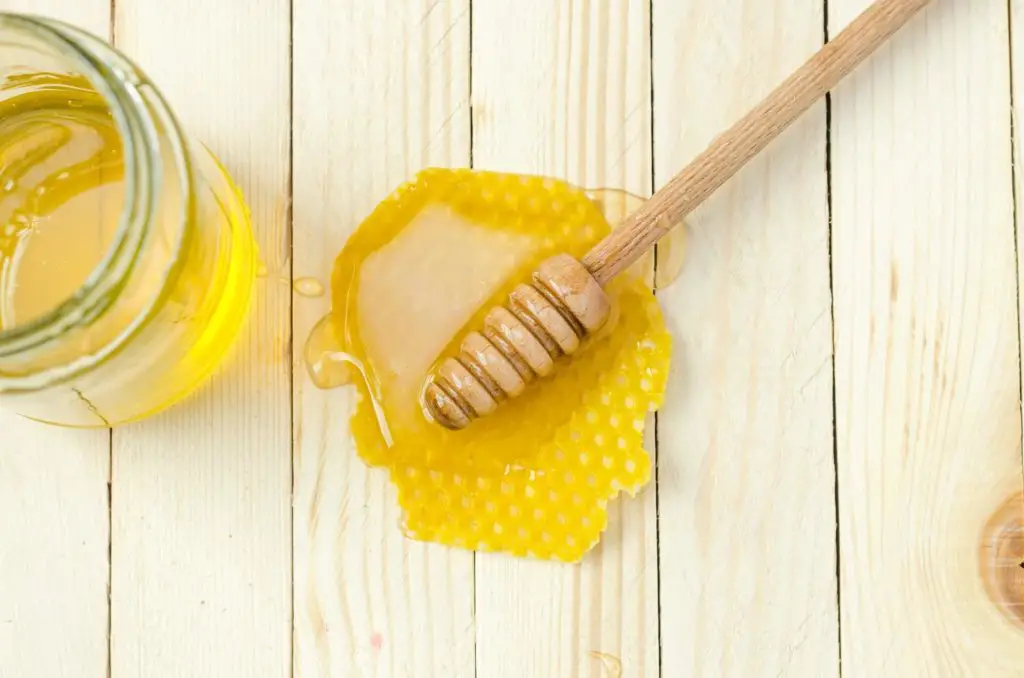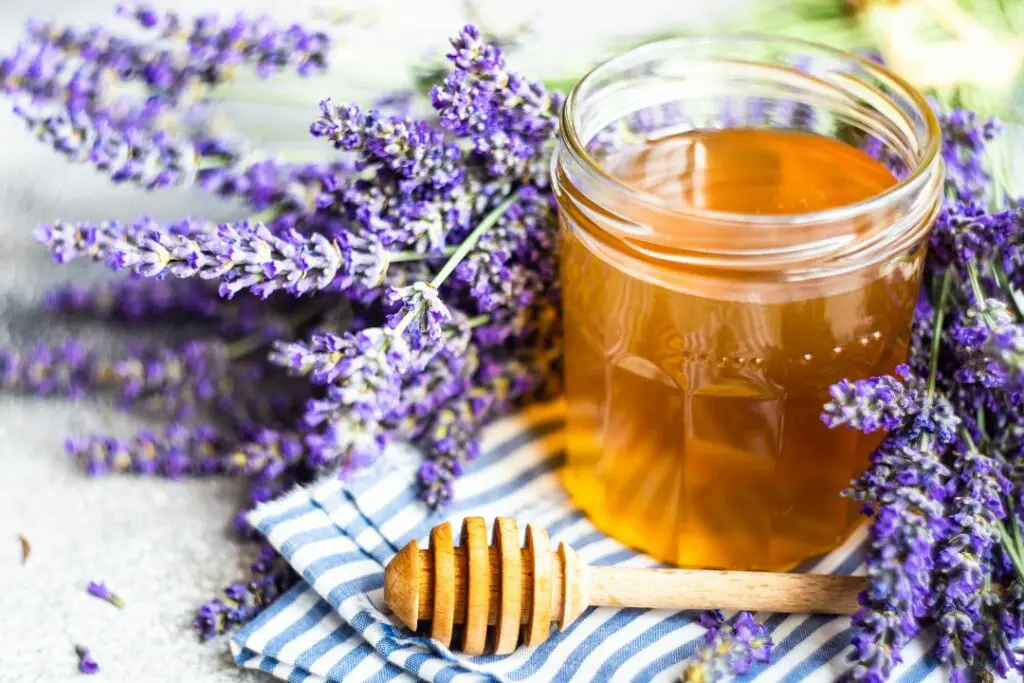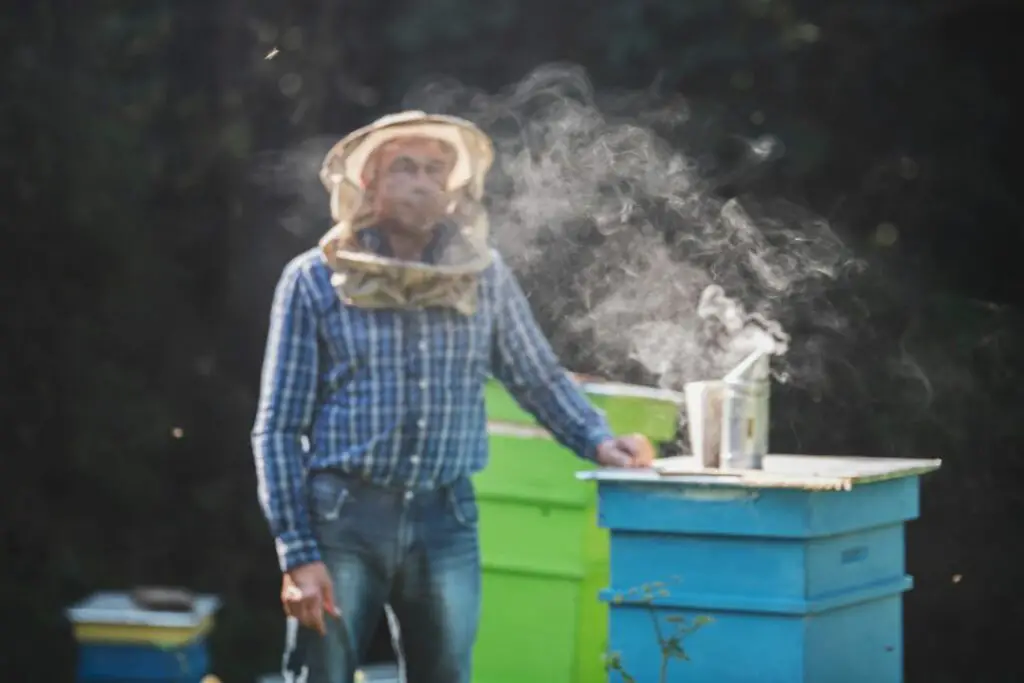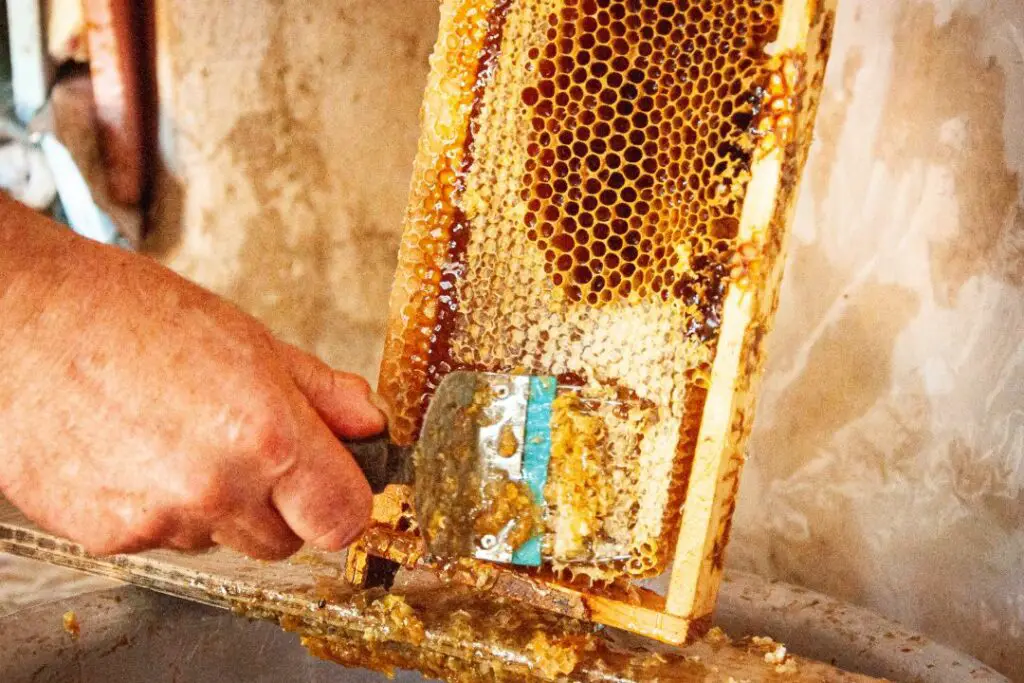Last updated on January 11th, 2024 at 02:56 pm
One of the best things about summer is that you can stock up on local honey. And you’d think one of the best ways to store your local honey is by freezing it.
But does freezing your honey work? Can honey be frozen?
We’ll walk you through everything you need to know about freezing your favourite sweet treat and how it affects its taste and texture.
Does Honey Freeze?
Yes, freezing honey is a great way of extending shelf life. When done correctly, it won’t lose any flavour or nutrients, and it’ll be safe from any bacterial growth.
Honey is a supersaturated sugar solution produced by bees, which means its sugar content is higher than the water content.
It has a lower freezing point than other sugars due to its high viscosity and low water content.
Because of these characteristics, it goes through three stages before freezing into a solid block.
When stored below -20°C, honey will remain amorphous until it reaches about -41°C.
At this point, the crystallization process begins slowly but gives honey an ‘ice-like’ appearance. This then accelerates once temperatures drop below -52°C, causing the honey to freeze into a single solid lump.
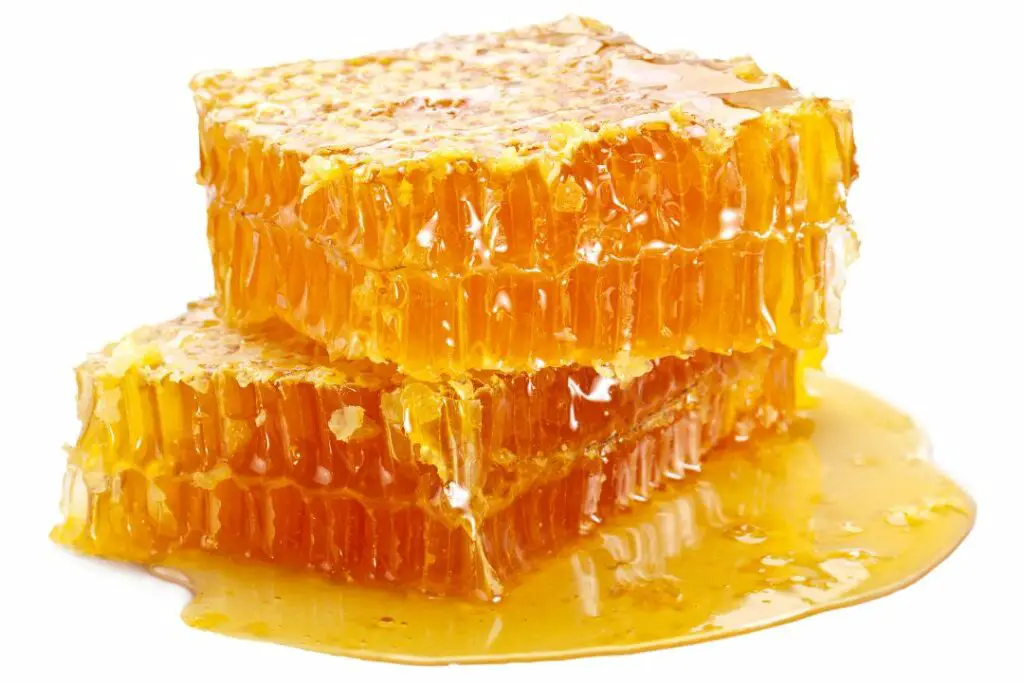
How Does Temperature Affect Honey?
Honey is a supercooled liquid, so it remains liquid below the freezing point of water even though it isn’t technically supposed to be a liquid at that temperature.
If you let your honey get too hot, you’ll end up with a liquid in complete opposition to freezing.
While this doesn’t make your honey completely inedible (and maybe still delicious), it won’t be as viscous as honey at room temperature.
At What Temperature Does Honey Freeze?
The freezing point of honey is an approximate temperature of-41°C.
As with most substances, three phases occur when honey reaches its freezing point: solidification, supercooling and crystallization, every stage can be returned to honey with a normal viscosity or runniness so it doesn’t need to cause concern.
Does honey freeze in winter?
Unless you live in an extremely cold climate where winter temperatures regularly drop below-41°C, you’re unlikely to see any stored honey reach the honey freezing point.
Does pure honey freeze?
No, honey won’t freeze like water. Instead of turning into ice, it will simply get thicker and thicker as the temperature drops.
Not a great option if you’re looking to spread some on your toast.
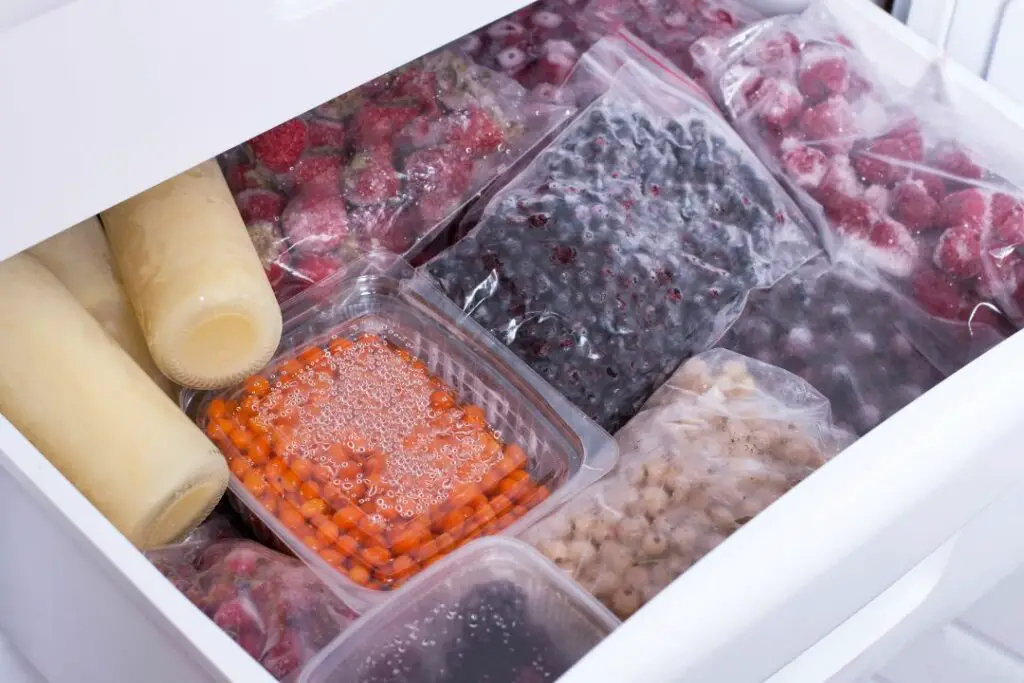
Preparing Your Honey For Freezing
Before you start freezing your jars of honey there are a few simple steps to go through to ensure the process is a success.
- Clean the jar. Wash it thoroughly and let it dry completely before starting.
- Fill the jar close to the top, and leave some room for expansion once the honey freezes.
- Seal the jar and label it with an expiration date so you know when to eat it to avoid any spoilage or contamination issues (pass it on to friends and family if you’re not going to get through it).
- Freeze your jar of delicious sweet goodness until ready to enjoy!
Defrosting Your Honey
To defrost, it is best to leave it in its jar and place the sealed container in warm water. Avoid using water that’s too hot and could damage the container or honey inside. Lukewarm is fine.
Avoid using your microwave for this process, it heats unevenly, resulting in scalding hot spots that aren’t good for the honey and could burn your mouth.
If you’re unsure whether or not your honey has gone bad after freezing it, there are a few things you can check.
- An unpleasant odour or appearance (like lumps of crystallized sugar),
- Mould growth on the surface of your jar/bottle/container
- A cloudy liquid inside your jar that does not appear to be honey
When it comes to your health caution is always advised so if you’re unsure if your honey has gone bad it’s normally better not to take the risk.
How Long To Freeze Honey for?
Storing your jars of honey in the freezer is suitable for periods of up to 12 months.
While honey will likely stay edible for much longer than this, being in a frozen state for so long can start to affect its taste and quality.
Is Freezing Honey A Great Summer Treat?
Honey or more specifically frozen honey has had its time to shine recently. With a recent upsurge in awareness around bees and bee products, a new trend on TikTok (a video-sharing app) has got participants turning honey into ice poles to consume.
While this might seem like the perfect alternative to a Mr Whippy it can lead to some rather unpleasant side effects. Participants reported nausea, stomach pain, cramps and even diarrhoea.
Whether this new trend is here to stay is yet to be seen but it’s safe to say you should avoid eating honey in its frozen form in large amounts.
Does freezing honey prevent crystallization?
Crystallization is the natural process of honey crystallizing and will occur when honey drops below 10°C so the honey will undoubtedly crystalise during the freezing process.
It’s not a sign of spoilage, and it doesn’t affect the shelf life of your honey.
Can you freeze honeycomb?
Yes, you can freeze honeycomb for up to 12 months just like honey. Wrap it up using cling film or plastic wrap and label it clearly with a use-by date so you know when to remove it from the freezer.
Does freezing honey destroy nutrients?
No, storing your honey in a freezer for 12 months or less will not affect the nutritional benefits when consumed.
The freezing process stops bacteria from growing and may add to the nutritional benefits when compared to honey stored using traditional methods ie larder, cupboard etc.

